Great Debates:
Michael Schumacher versus
Lewis Hamilton
Two drivers; one debate: Reece Goodall and Luke James argue the case for Schumacher and Hamilton
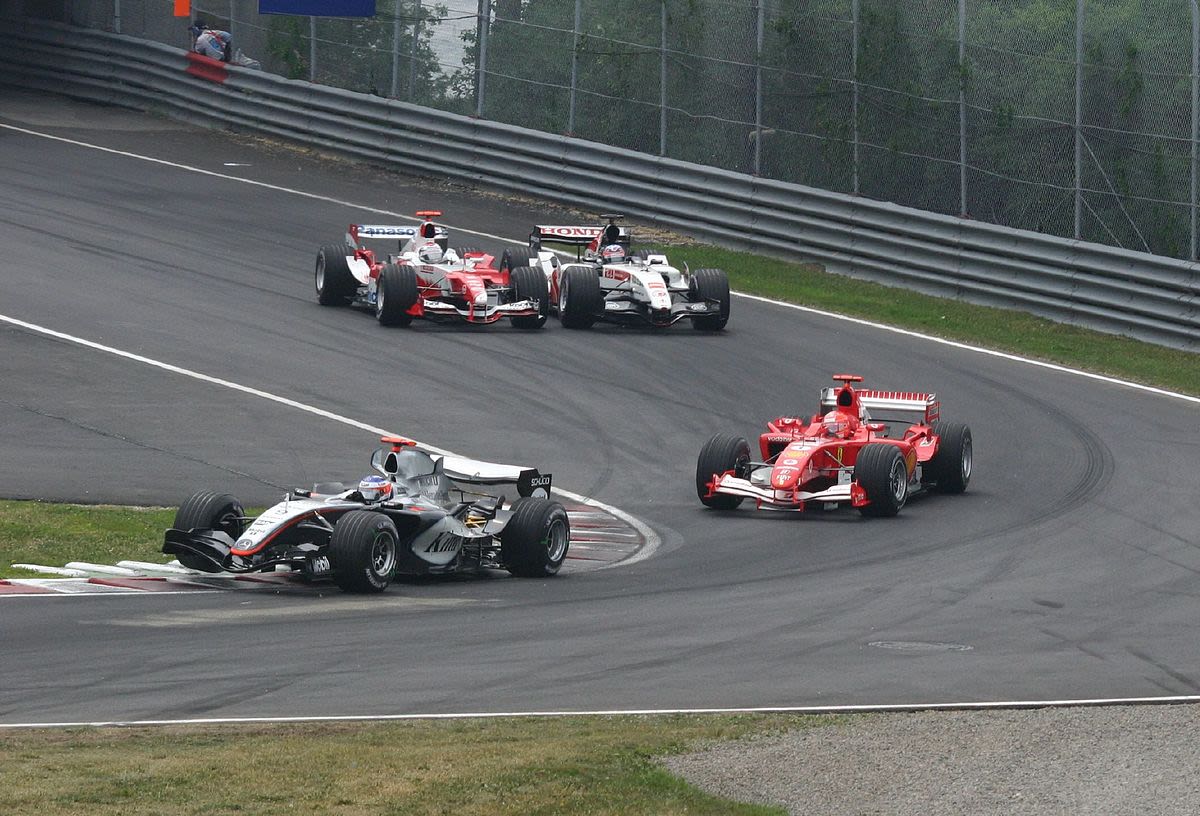
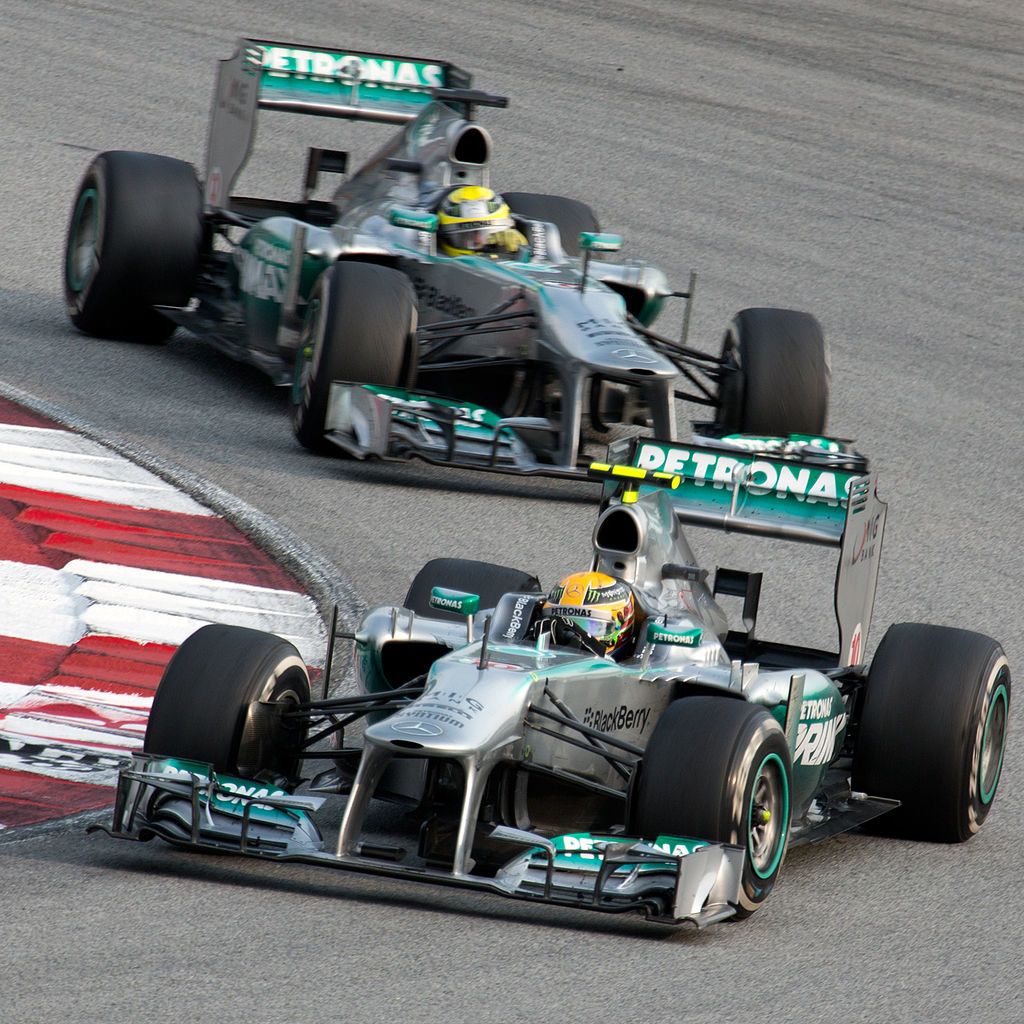
Image: Wikimedia Commons / Morio
Image: Wikimedia Commons / Morio
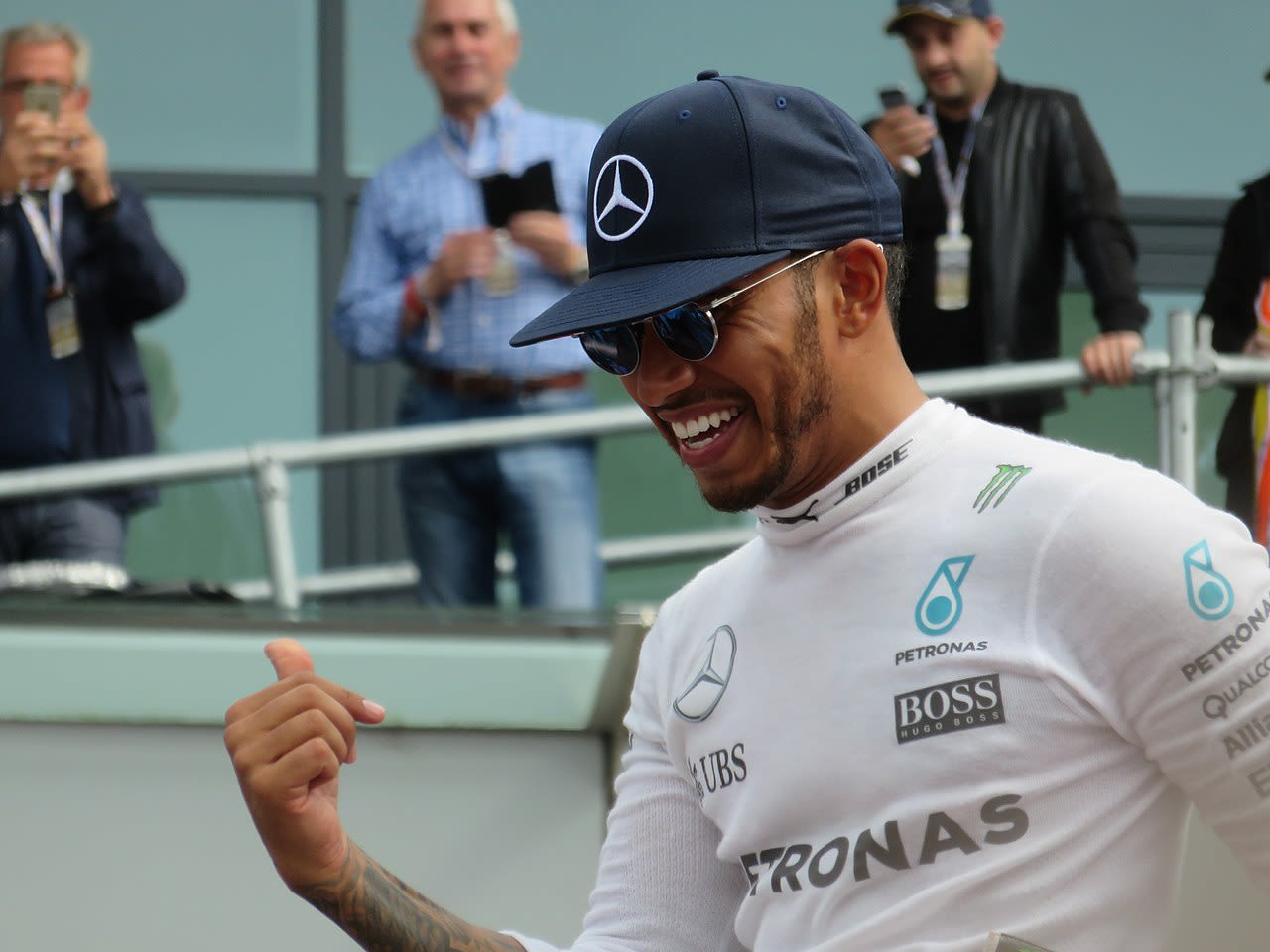
Image: Wikimedia Commons / Jen_ross388
Image: Wikimedia Commons / Jen_ross388
Both F1 drivers are undisputed legends, but I think Lewis Hamilton has what it takes to pip Michael Schumacher to the first-place finish.
Let’s start with a look at some numbers. Hamilton has taken part in 250 Grand Prix, taking a podium finish in 151 of them (84 of which were a win). He’s rapidly closing in on Michael Schumacher’s record of 91 first-place finishes and, with six World Championship titles already under his belt, there’s no reason that he couldn’t equal or surpass the German’s seven. And it goes without saying that he is very quick, taking a number of lap records throughout his career on numerous courses.
Of course, stats do not paint the whole picture, and it’s unfair to rely solely on data to measure someone who is still in the peak of their career. Hamilton is clearly a natural talent, with an obvious ability to feel a car and push it to its limits. He’s managed this through several regulation changes – in cars both with and without traction control, during the age of aerodynamics and throughout the new hybrid era. It’s easy just to dismiss a racer as being only as good as their car, but everyone has a great car – you need someone with the feel of Hamilton to get the best out of their car too.
Much as he feels the car, Hamilton clearly also has a natural feel for racing. Hamilton excels in normal conditions, but he is particularly strong in the rain, balancing caution with a need for speed. In braking duels, he normally holds out when other racers would stop, winning more often than not. Although he likes to be in front, he is a racer who thrives when he’s behind, taking every advantage and opportunity to shrink the gap and overtake those in his way. Hamilton continually surprises on the racetrack, his talent and dominance matched by his evident instinct. Importantly, he doesn’t need to cross the line as Schumacher has done, resorting to underhand tactics like driving into his competitors to take them out of play.
In a lot of sports, it is said that a sportsperson can be judged on the strength of the rivals they inspire and the way they deal with them – Hamilton has excellent temperament, and it has only evolved throughout his career. An early rivalry with Nico Rosberg was prone to getting heated, but there was no sign of this as he began to take on Sebastian Vettel. This German, a four-time world champion in his own right, is frequently touted as Hamilton’s great rival, but this clash has become increasingly one-sided. As the two battle, Hamilton holds his nerve and finds more and more victories as Vettel generally collapses into a sea of unforced errors and hot-headed reactions. Even now, as the likes of Max Verstappen and Charles Leclerc rise up to challenge Hamilton, he remains defiant. On his current form, there’s no reason that he shouldn’t keep racking up wins.
Perhaps it’s unfair to judge the modern F1 against its past – Hamilton and the gentleman drivers of the 50s are obviously in different worlds entirely. Schumacher and Hamilton, though, belong to roughly the same era and the latter is on the right path to eclipse the former in terms of stats. But it’s entirely clear that Hamilton is certainly the sport’s future and, even at the age of 35, it would be a surprise if he didn’t dominate for years to come. His consistency, spirit and drive (pun most definitely intended) to succeed and to continue to push himself all mark him out as one of the best drivers ever to grace F1, and he lacks the black marks that sour Schumacher’s record.
By Reece Goodall, Eds. Luke James
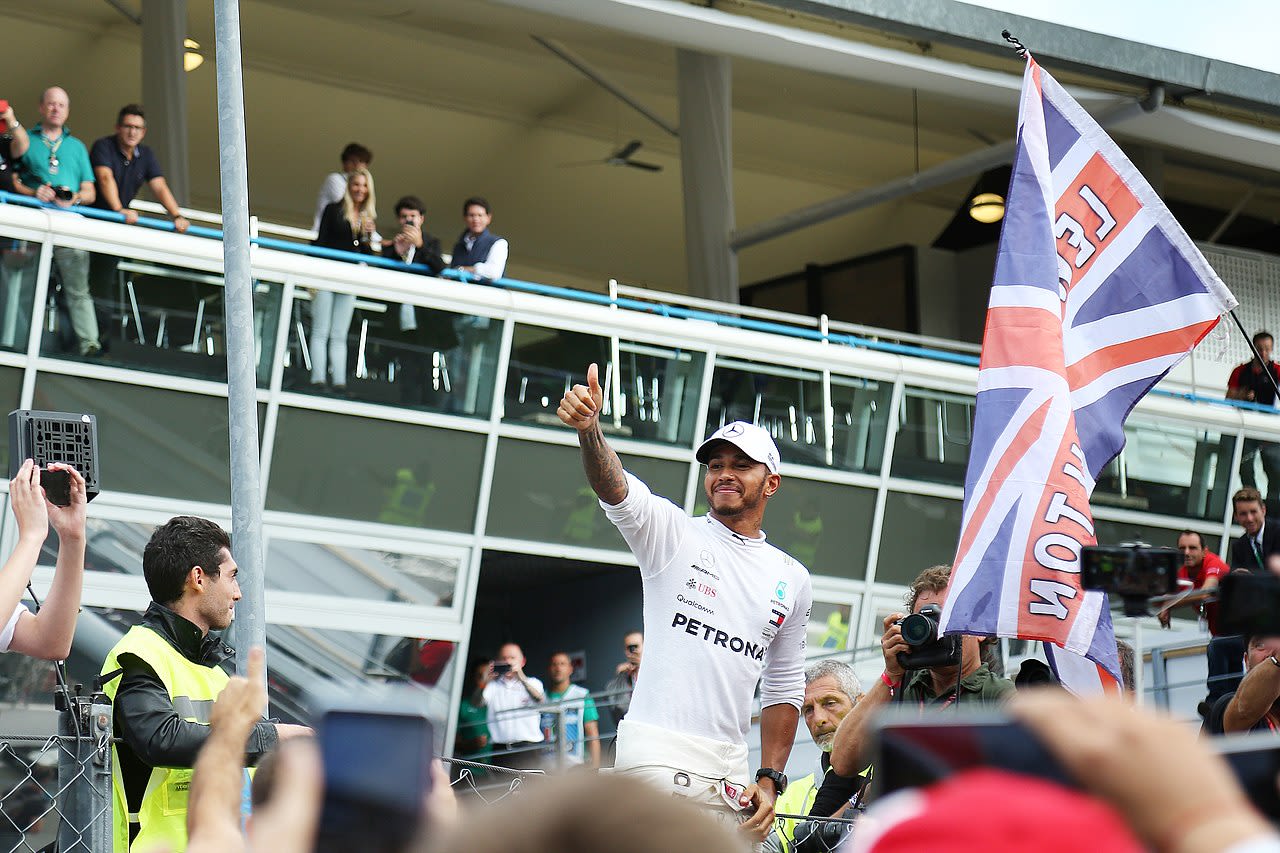
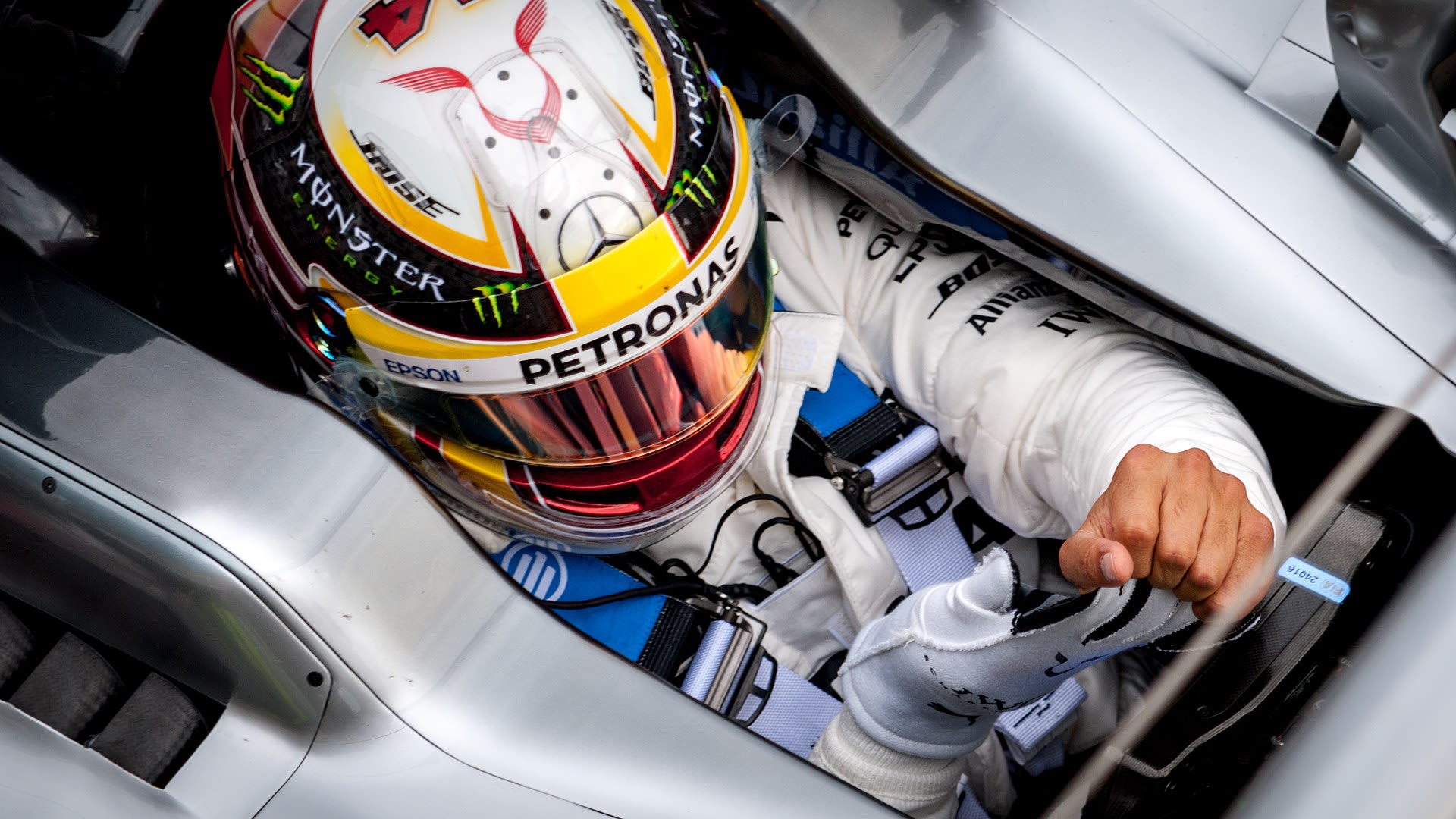
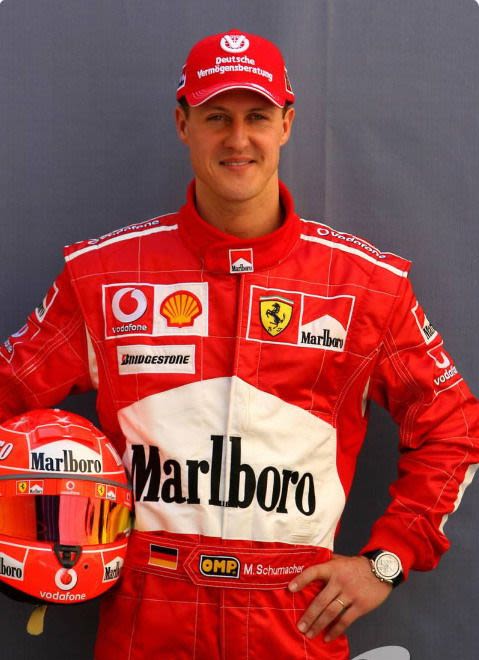
Image: Wikimedia Commons / Garelfrog1
Image: Wikimedia Commons / Garelfrog1
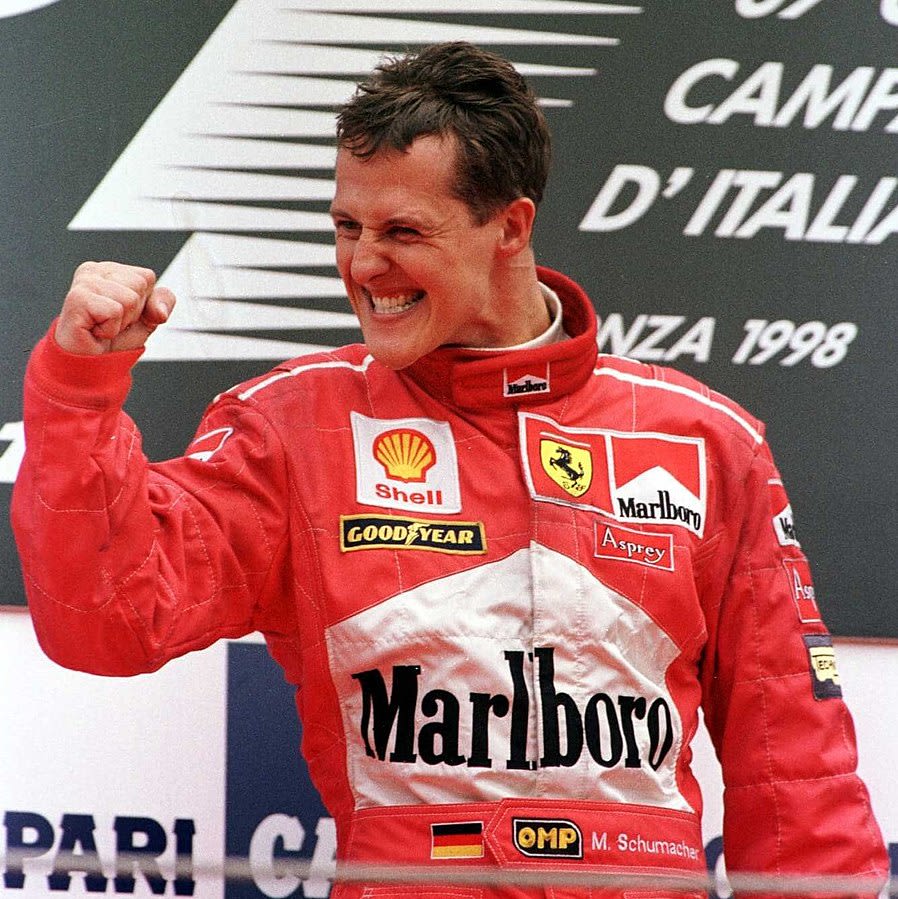
Image: Wikimedia Commons / Michael Cooper / ALLSPORT
Image: Wikimedia Commons / Michael Cooper / ALLSPORT
Lewis Hamilton is a phenomenal driver, and among a vanishingly small pool of sportspeople in the conversation to be recognised as Britain’s greatest athlete of all time. In all honesty, I don’t have a negative word to say about the six-time Formula One World Champion: the Stevenage-born racer is a sensational talent, and always has been.
Much to the disappointment to the sensationalists among us, I won’t seek to diminish Hamilton’s achievements in order to promote the extraordinary talents of Michael Schumacher, the person I regard to be the greatest Formula 1 driver of all time. In fact, it is arguably reductive to suggest that only Hamilton and Schumacher deserve to be mentioned in this conversation. Jim Clark, Gilles Villeneuve, Alberto Ascari and Ayrton Senna – among many more – are equally befitting of praise.
Michael Schumacher, however, is my guy, and he always will be. Just allow me to explain why.
Each Sunday, after traipsing around a muddy football pitch, I remember travelling home with my dad and spending hours glued to the TV, watching on as a German man with an incredibly complex name raced fearlessly around a racing track. In my youthful inexperience, I didn’t appreciate Schumacher’s immense talent; nor the way that he had of beating of everyone else on the grid.
Schumacher began his career in 1991, and won his first World Championship just three years later for Benetton. Schumacher’s maiden F1 Championship came amid tragic circumstances in 1994, as the sport mourned the deaths of Ayrton Senna and Roland Ratzenberger – both of whom were lost far too soon at the San Marino Grand Prix.
Schumacher’s first title, like much of the German’s career, was mired in controversy, as his Benetton team stood accused of breaching F1’s technical regulations. Schumacher’s recurrent collisions with Damon Hill – who Schumacher beat to the title by just one point – fuelled the narrative that the Hürth native would do anything to win.
Of course, onlookers are permitted to take two wildly different readings of Schumacher’s temperate. Cynics would argue that Schumacher repeatedly engaged in the dark arts throughout his career, stopping at nothing to take the chequered flag. Optimists would assert that Schumacher had a propensity to push himself to the very limit, fuelled by his desire to take the chequered flag at every possible opportunity.
Perhaps it would be best to sit on the fence? Michael Schumacher did engage in the dark arts of motorsport, frequently squeezing his opponents beyond the limits of the track. At the same time, however, Schumacher was only ever driven by his desire to win; there was never any malicious content, and it is ridiculous to suggest so.
Schumacher successfully defended his title with Benetton in 1995, and secured a move to Ferrari – the most prestigious name on the grid, but undoubtedly sleeping giant. Before Schumacher’s arrival, Ferrari hadn’t won a Drivers’ Championship since the 1970s, and it had been thirteen years since the Italian stalwarts of F1 had secured the Constructors’ Championship. Joined at Ferrari by Rory Byrne and Ross Brawn, Schumacher transformed the team’s fortunes, winning more races in his debut season in red than Ferrari had won in the previous four years combined.
In 1997, Schumacher almost broke Ferrari’s dry spell. Jacques Villeneuve, the beneficiary of driving a much superior Williams, led the Championship for much of the year, but Schumacher remained in contention regardless. The season ended in controversy in Jerez, as Schumacher attempted to orchestrate a racing incident with his title rival to avoid defeat. Schumacher was punished, and Villeneuve took the title.
Schumacher’s F1 career was defined by his ruthlessly competitive streak, and that is why he is the most successful driver of all time. A seven-time World Champion – five of which were won in succession, and the record holder for most Grand Prix wins (91), fastest laps (77) and races won in a single season (13), it is hard to dispute Schumacher’s class.
Schumacher transformed Ferrari’s fortunes, ensuring the Italian giants were able to move into the modern era with the capacity to challenge at the front of the grid. Even in defeat, after conceding the 2006 World Championship to Fernando Alonso, Schumacher possessed a grace and poise rarely matched in Formula 1.
In the final race of the 2006 season, Schumacher dropped to 19th place, 70 seconds behind his teammate, Felipe Massa, as a result of a tyre puncture. Regardless, Schumacher recovered to secure fourth position in what continues to be appreciated as one of the best drives of all time.
I’m not here to expunge some of the less palatable things that Schumacher did throughout his career. I’m here to say that Michael Schumacher is the greatest Formula 1 driver of all time, and that I – and a generation of awe-inspired onlookers – miss his presence every race day.
By Luke James, Eds. Reece Goodall
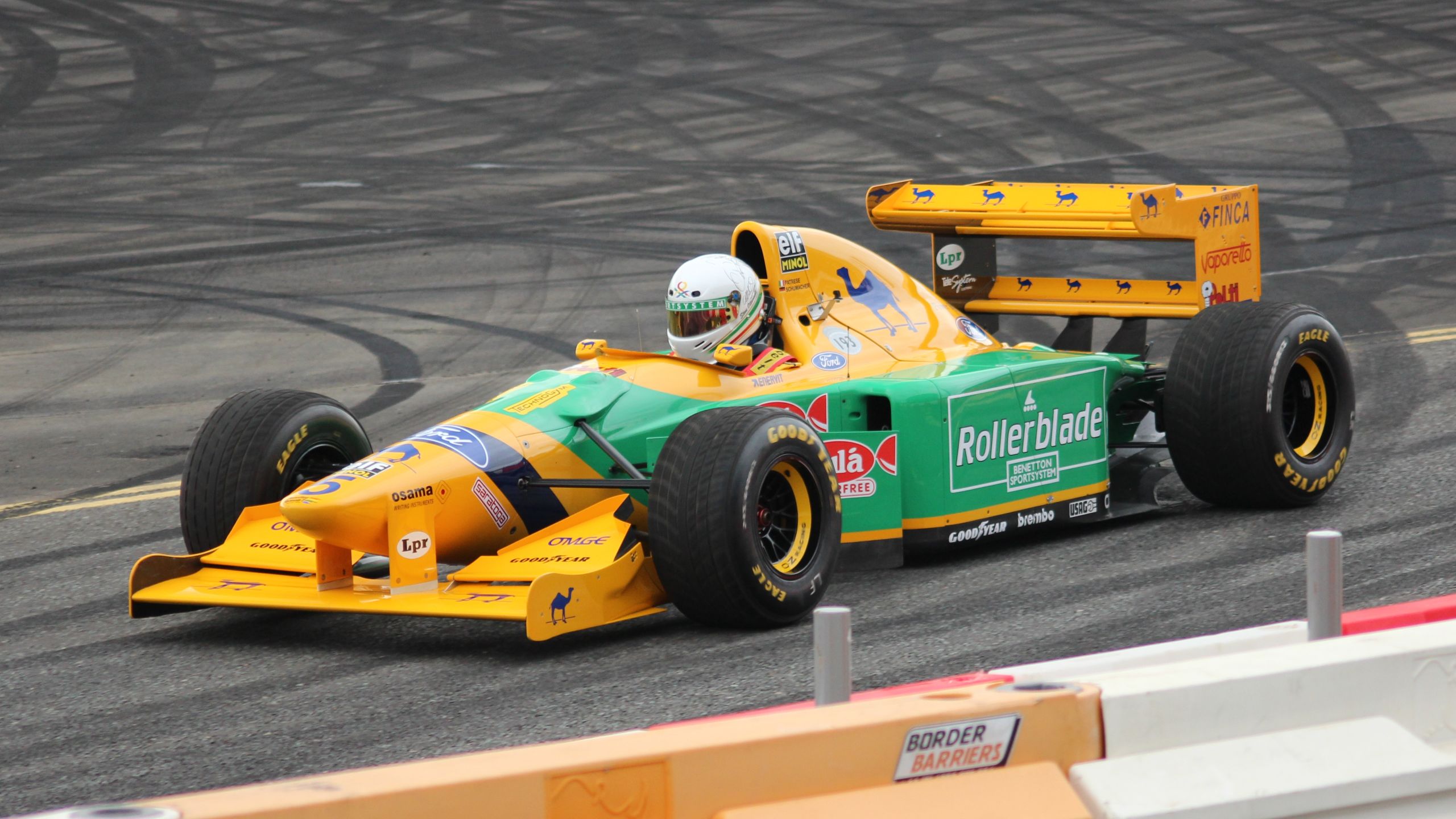
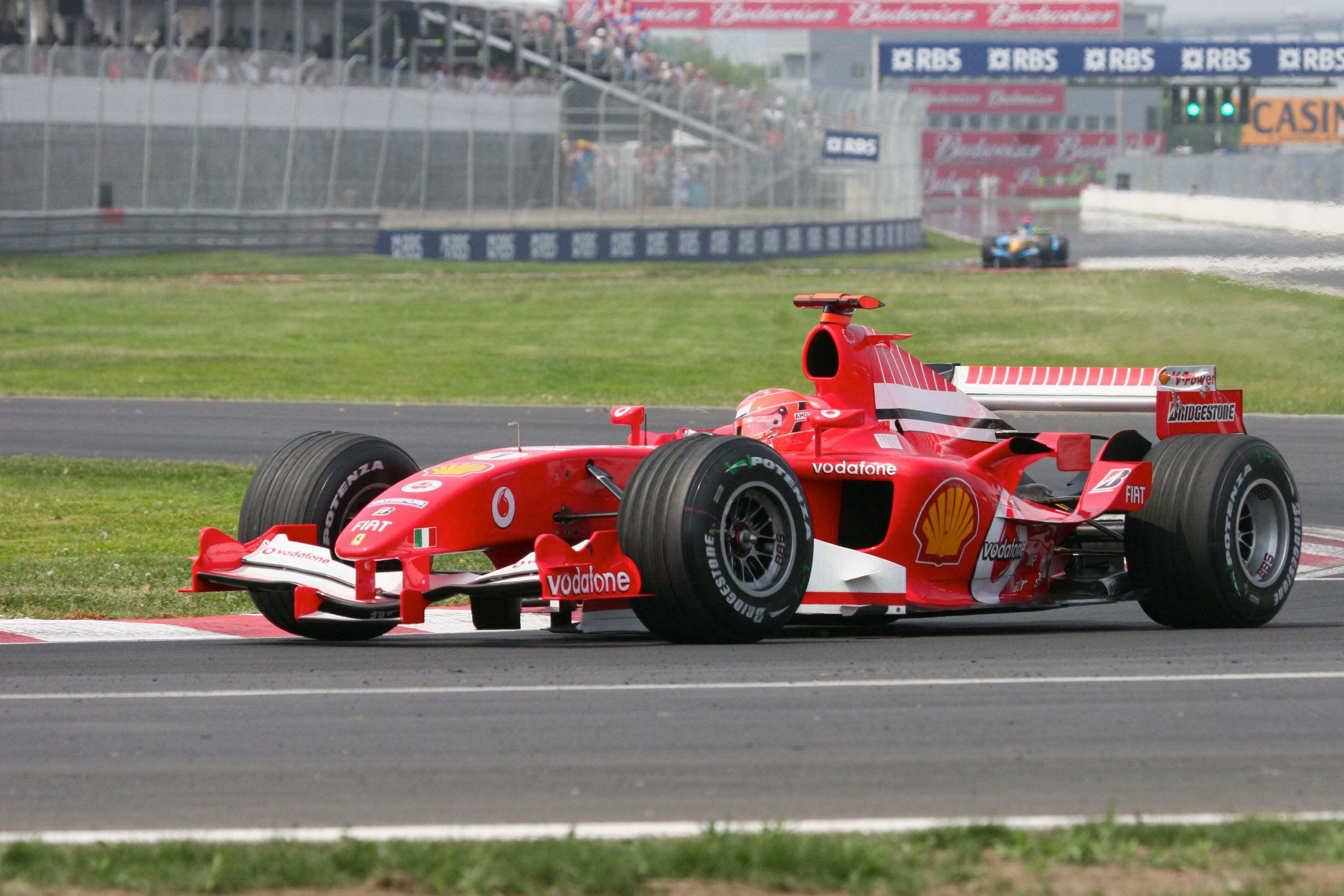
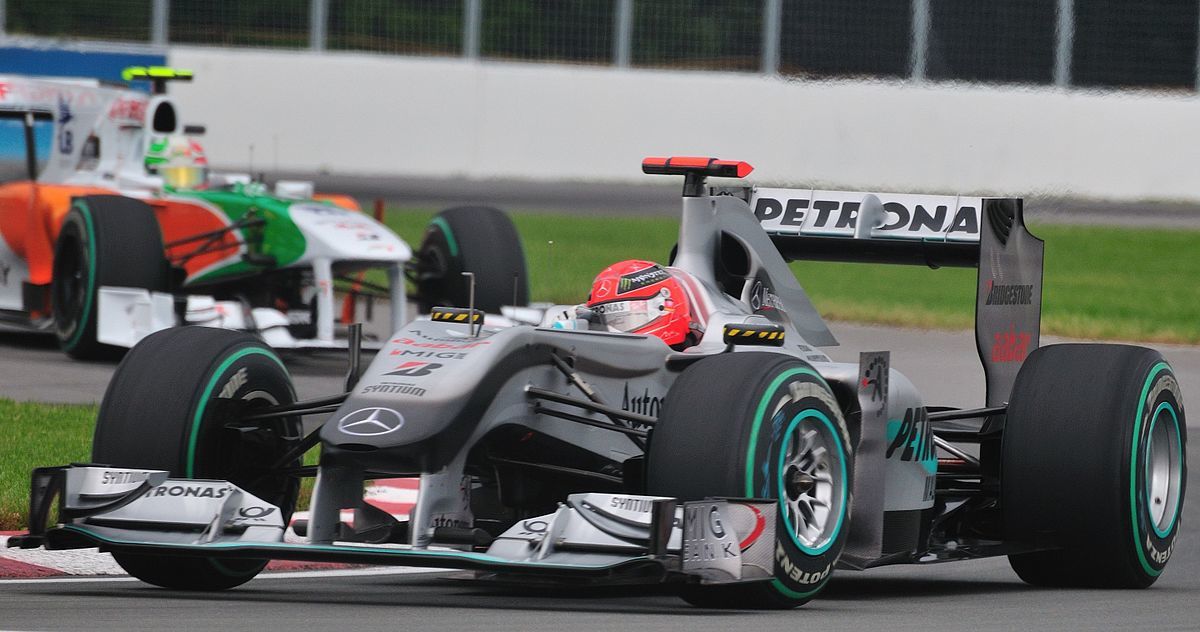
Section Two (Lewis Hamilton), By Reece Goodall
Image 1: Wikimedia Commons / Takayuki Suzuki
Image 2: Wikimedia Commons / Jake Archibald
Section Four (Michael Schumacher), By Luke James
Image 1: Wikimedia Commons / Steven Straiton
Image 2: Wikimedia Commons / ph-stop
Image 3: Wikimedia Commons / Gregory Moine
